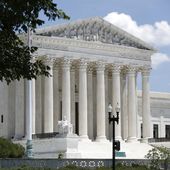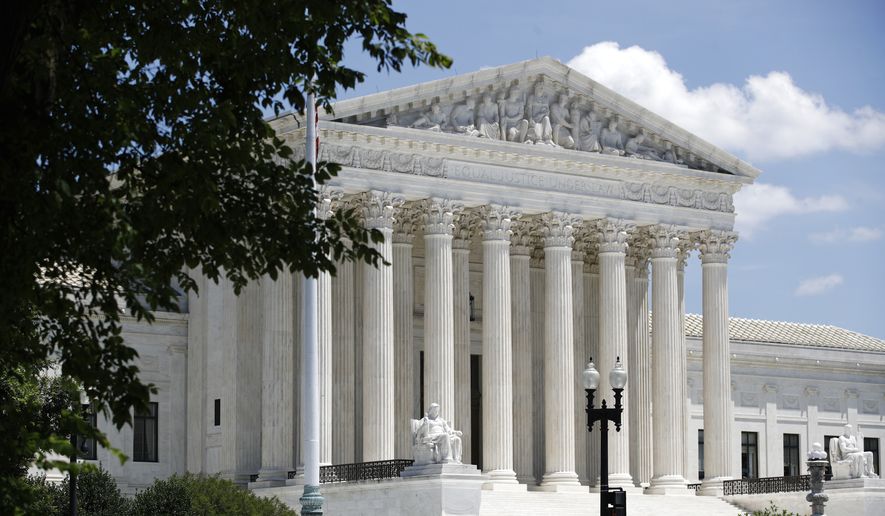The Supreme Court rejected a challenge to a Wisconsin school district’s policy to assist students in gender transitioning without parental consent, but three justices said they would have granted a review of the case Monday.
The challenge was brought by parents of students in the Eau Claire Area School District, which in 2021 announced a policy to assist students in gender identity changes without parental consent. The policy guidance noted that parental knowledge must be earned.
The parents challenged the policy, but the 7th U.S. Circuit Court of Appeals said they lacked standing — meaning a sufficient legal injury — to bring the case. They had argued that the policy interferes with their constitutional right to rear their children.
The 7th Circuit said they would have to show that one of their children was transgender or thinking about transitioning to be able to bring the case.
Justice Samuel A. Alito Jr., joined by Justice Clarence Thomas, dissented from the court’s refusal to review the 7th Circuit’s decision. They said the policy aims at keeping parents in the dark, so the 7th Circuit’s reasoning should be weighed. They also noted that roughly 1,000 school districts have adopted such policies.
“I would grant the petition,” Justice Alito wrote. “I am concerned that some federal courts are succumbing to the temptation to use the doctrine of Article III standing as a way of avoiding some particularly contentious constitutional questions. While it is important that federal courts heed the limits of their constitutional authority, it is equally important that they carry out their ’virtually unflagging obligation … to exercise the jurisdiction given them,’” Justice Alito wrote.
Justice Brett M. Kavanaugh did not join Justice Alito’s dissent but noted he would have granted the application for review.
It would have taken one more justice to vote in favor of hearing the case for oral arguments to be granted.
The case is Parents Protecting Our Children v. Eau Claire Area School District.
• Alex Swoyer can be reached at aswoyer@washingtontimes.com.




Please read our comment policy before commenting.